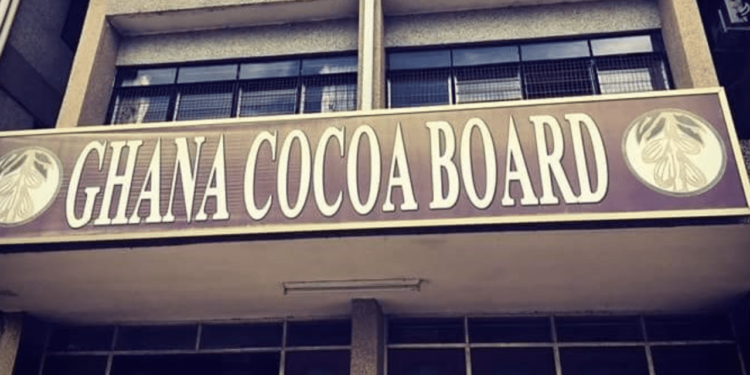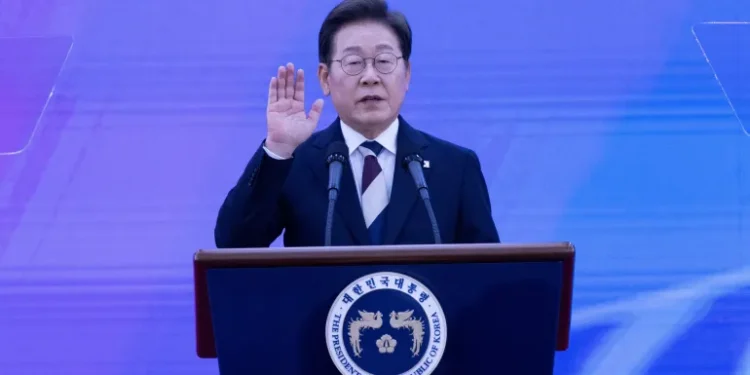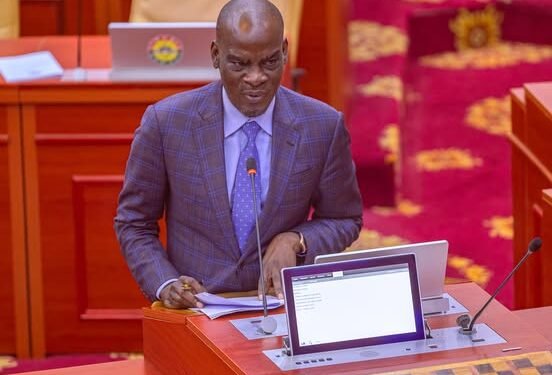The recent US tariff on Ghanaian exports has sparked concerns about its long-term consequences on the country’s economy.
According to the IMANI Center for Policy and Education (IMANI Africa), the 10% tariff, now imposed on Ghanaian exports to the United States, is likely to undermine the nation’s competitiveness in one of its key export markets.
The policy think tank painted a stark picture of the economic ripple effects that could unfold if urgent countermeasures are not taken.
“The direct impact of the 10% tariff will be felt in the form of higher costs for Ghanaian goods exported to the U.S. This is because the tariff will increase the final price of both final goods and intermediate products that Ghana exports.”
IMANI Center for Policy and Education
According to IMANI, this additional cost burden will affect both finished goods and intermediate products, making them less attractive to U.S. buyers.
Key sectors such as processed agricultural products, textiles, and light manufactured goods — all crucial to Ghana’s export profile — are expected to suffer the most.
“The tariff will likely lead to a decline in export revenue, especially from non-traditional exports (NTEs). In 2023, NTE exports accounted for about 24% of the total national exports, equating to approximately ₵3,944 billion.”
IMANI Center for Policy and Education
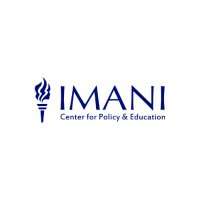
Accordingly, IMANI indicated that with the new 10% tariff in place, Ghana risks losing its competitive edge in that market.
As such, IMANI pointed out that this could trigger a notable decline in export volumes, with ripple effects on the country’s trade balance and overall economic performance.
IMANI Warns Of Economic Fallout
The policy center also discussed the indirect effects of the tariff, particularly concerning Ghana’s imports from the U.S.
These include crucial machinery, equipment, and vehicles—some of which rely on raw materials sourced from third-party nations like China and Japan, which themselves are targets of U.S. tariffs.
The increased cost of production in the U.S. may be passed on to Ghanaian importers, leading to inflationary pressures back home.
IMANI pointed out that “some of the goods Ghana imports from the U.S. are used as intermediate goods for local production.”
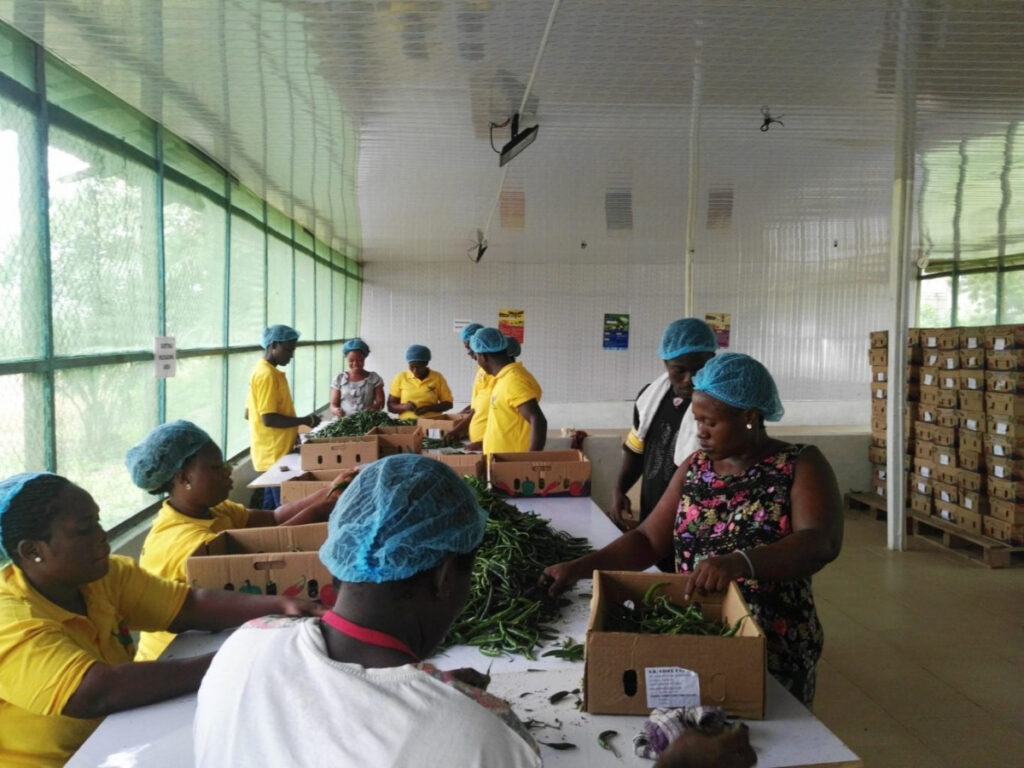
If these become more expensive due to higher raw material costs or supply chain disruptions, the cost of local production will rise.
This could push prices up in critical sectors like food processing, construction, and manufacturing—ultimately affecting the average Ghanaian consumer.
Another concern raised by IMANI is a potential decline in U.S. investment in Ghana. Much of the investment from American companies had been spurred by trade agreements such as the African Growth and Opportunity Act (AGOA), which allowed for preferential access to the U.S. market.
“The delay in renewing AGOA and the introduction of the baseline 10% tariff could raise production costs for U.S.-based companies operating in Ghana.”
IMANI Center for Policy and Education
This could drive investors to shift their operations to more competitive markets that offer better access to the U.S.
The center warned that this could affect future investments in vital sectors such as agriculture, services, and manufacturing, which have been central to Ghana’s job creation and economic growth.
Another sobering point was the direct hit Ghana’s export revenue is expected to take. “Cocoa exports, which account for nearly 40% of Ghana’s total exports to the U.S., could see a drop in volume.”
In February 2025 alone, cocoa exports to the U.S. stood at $835.5 million, with about 11.5% of Ghana’s cocoa products headed to American markets. The revenue from this sector is not just important for the trade balance—it’s Ghana’s third-largest source of foreign exchange.
As IMANI grimly concluded, “This reduction in export revenue will directly affect Ghana’s trade balance.” With imports either remaining the same or increasing, Ghana could end up spending more foreign exchange while earning less—deepening the trade deficit.
Tariff Puts Cocoa, Textiles, and Jobs on the Line
The impact on local industries is equally troubling. Agribusiness and manufacturing sectors that rely heavily on U.S. exports stand to lose the most.
Textile manufacturers, for example, may suffer if U.S. buyers opt for cheaper alternatives elsewhere. Cocoa processors also face a possible dip in demand, which could lead to lower output and job losses.
The GEPA report further backs up IMANI’s concerns. Non-traditional exports, which formed a growing share of Ghana’s trade profile, rose to GH¢3.94 billion in 2023.
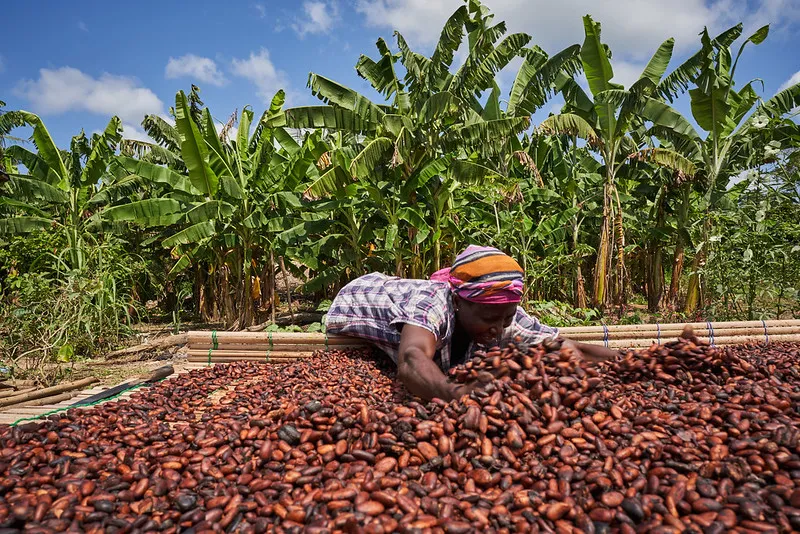
“The majority of these exports came from the manufacturing and semi-processed category, which accounted for 85% of NTEs and grew by 14.15%. Agricultural products made up 12.56%, though they declined by 3.02%, while handicrafts contributed 2.43% with a 17.85% growth.”
IMANI Center for Policy and Education
The top five NTEs—iron/steel products, cocoa paste, cashew nuts, cocoa butter, and plastic articles—are all vulnerable to the added cost of the tariff.
With cocoa paste and butter among the top exports, any disruption could send shockwaves through the industrial and agro-processing sectors.
The implications go beyond trade. A fall in export revenue could weaken the Ghanaian cedi, which is already grappling with inflation and fiscal stress.
Less foreign exchange means more pressure on the currency, leading to higher import costs and worsening inflation.
However, it is not all doom and gloom, as IMANI proposed diversifying trade partnerships as a viable response.
Ghana, it said, should pivot toward expanding exports under the African Continental Free Trade Area (AfCFTA) and tap into other global markets like the EU and China.
“Strengthening Ghana’s regional value chains under AfCFTA is crucial,” IMANI emphasized, noting that local industries must also rise to the occasion by improving quality, branding, and packaging to better compete in an increasingly tough global market.
READ ALSO: Ukraine Captures Two Chinese Nationals Fighting For Russia













